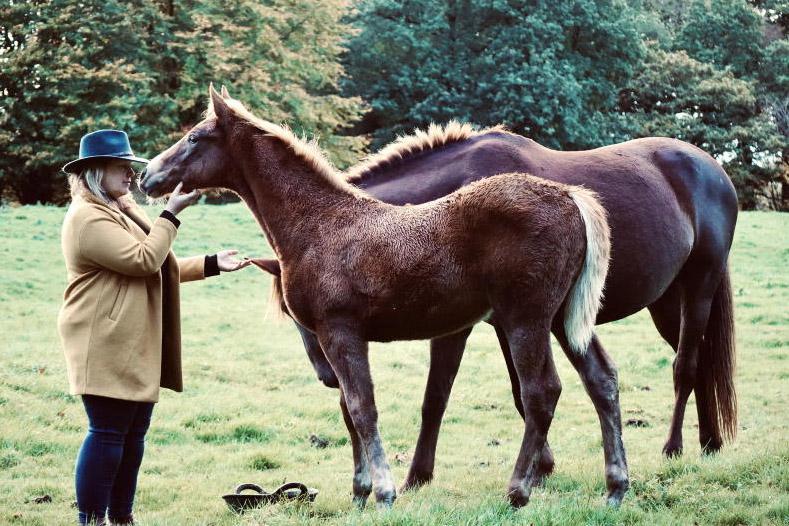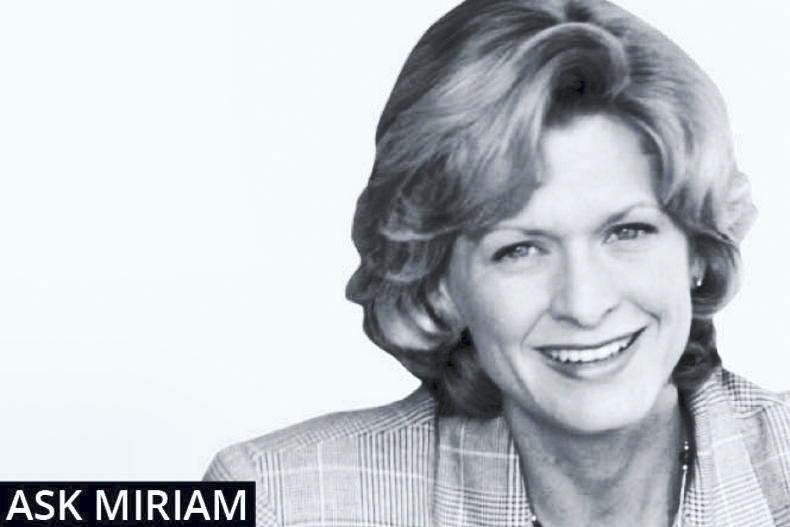Instincts are generally a good thing. We instinctively eat, reproduce, and run away when we see a lion who wants to eat us.
Mums however have another instinct which instead of protecting them can destroy their own health if they do not take action to mind themselves.
This instinct dictates that if a mum sees something wrong with her cub, she will instinctively try to find a solution. This is all very well and good, we all want to protect our children. However, if mum sees a problem that she can’t fix, it is impossible for her to switch off the demand in her head that she must find a solution.
So, let’s say that one of her offspring starts to get into trouble with the gardaí. Mum will instinctively try to fix the problem. And if their cub keeps getting into trouble, mums will keep searching for a solution to fix them. Over time, as the problem gets bigger, the harder mum will work to try to fix it, the more stress she is under.
I see mums every day beating their heads of the proverbial brick wall trying to fix their cub until they collapse emotionally
There is an expression that you can carry a message, but you can’t carry a body. The less responsibility a child takes to solve their own problem, the more mum will try to fill the gap.
And most will keep doing this, no matter how bad the situation gets. I see mums every day beating their heads of the proverbial brick wall trying to fix their cub until they collapse emotionally. Eventually, they become so punch drunk that their own health starts to suffer. Stress levels can go through the roof bringing with it a host of consequences for physical and mental wellbeing.
Ideology is the luxury of those who don’t have to live with the mess
However, this draw on one’s mental health is not gender specific. It pertains to the primary carer, regardless of your gender. As when you are in the primary carer role, the buck stops with you. Ideology is the luxury of those who don’t have to live with the mess. You can have all the support in the world, but when no one else has a solution that works, the ultimate responsibility falls back on you.
Can you find help in a parenting book?
Have you ever read a parenting book and thought that the theory must have been written for somebody else’s family. That when you try to practice the techniques with your own children, you just doesn’t get the same result in your family.
We are taught that we must always have a solution to every problem. And if we don’t get a result immediately, then it’s our fault. Because in “normal families” everything gets fixed Hollywood style. We all do it. We think there is a normal family out there that’s better than ours. A Waltons-style family that can solve every problem by perseverance and grit. Just like the books say it should be, but as most of us have found out, that is a load of cobblers.
Being happy, not being perfect
Understanding that your family doesn’t have to be perfect in order to be effective and actually identifying where you are getting it wrong is a balance that none of us are good at achieving. Kids don’t come with an Ikea assembly manual and neither did we. Despite that, we navigated our way through to adulthood. Most of us have no idea how we did it, but we did. So how can we teach something to our kids that we have no idea how we did ourselves?
Most of us don’t need another parenting programme
When you get a puncture in your car, you don’t need to have a degree in engineering to fix it. You just need to know how to change a wheel. Similarly, most of us don’t need another parenting programme.
So, the next time you feel at the end of your tether, remember that if we can just manage to come even close to getting it right, our kids will turn out OK. They will survive our hopeless parenting, as we survived our parent’s hopeless parenting. And that is the most valuable lesson I have learned from the hundreds of parents I’ve seen over the years.
Four tips to becoming
an effective parent
1 Understand what real families look like
If you want to know what real families are like, then look no further than your own front door. Go for a walk around your locality and know, that behind every door, families are muddling through no more effectively than your family is. And just as well, since in order to be an effective parent, you don’t need to be any more than a ‘muddle manager’.
2 Keep it simple
Our job is to teach our children how to live in their world, not ours. The primary goal of parenting is to “keep ‘em breathing and outta jail, everything else is a bonus”. Children are a 25-year full-service contract after which they choose their own way in life regardless of how they have been reared or what philosophy we have tried to impart upon them.
3 Keep the goal in mind
We can’t dictate what our kids will do with their lives. To be successful, all we have to do is create an environment where we can influence the type of person, they will turn out to be. Navigating our kids’ lives from childhood to adulthood is as much about learning to identify and develop our own life skills as it is in trying to teach our kids theirs. We can’t teach what we don’t know?
4 Let them see your
mistakes and how to learn from them
A lioness teaches her cubs how to hunt by showing them the whole experience of hunting, not just the successful kills. This includes letting them see all her failures and mistakes. Her cubs learn as much by seeing her getting it wrong as they do in seeing her getting it right. They learn how to be successful by learning how to fail. And who better to teach our kids how to roll with the punches when they fail, than us.
It is only by mastering these skills ourselves that we are then able to mentor our children in exploring and learning how to live their lives. So, keep practicing, and let your kids see how you keep practicing.
Life, living and practicing good mental health is a journey not a destination. Just like with our physical health we are growing towards good or poor mental health in ourselves by practicing the qualities of balance, tolerance and keeping things in perspective with our kids.
Enda Murphy is a cognitive behavioural therapist who focuses on supporting adults to support young people. For more details go to www.seeme.ie
Please email your own queries for Enda to advice@farmersjournal.ie
Read more
Agony Uncle: Don’t get into the ring with a 16-year-old
Agony Uncle: ‘Still a little worrier and always has been’
Instincts are generally a good thing. We instinctively eat, reproduce, and run away when we see a lion who wants to eat us.
Mums however have another instinct which instead of protecting them can destroy their own health if they do not take action to mind themselves.
This instinct dictates that if a mum sees something wrong with her cub, she will instinctively try to find a solution. This is all very well and good, we all want to protect our children. However, if mum sees a problem that she can’t fix, it is impossible for her to switch off the demand in her head that she must find a solution.
So, let’s say that one of her offspring starts to get into trouble with the gardaí. Mum will instinctively try to fix the problem. And if their cub keeps getting into trouble, mums will keep searching for a solution to fix them. Over time, as the problem gets bigger, the harder mum will work to try to fix it, the more stress she is under.
I see mums every day beating their heads of the proverbial brick wall trying to fix their cub until they collapse emotionally
There is an expression that you can carry a message, but you can’t carry a body. The less responsibility a child takes to solve their own problem, the more mum will try to fill the gap.
And most will keep doing this, no matter how bad the situation gets. I see mums every day beating their heads of the proverbial brick wall trying to fix their cub until they collapse emotionally. Eventually, they become so punch drunk that their own health starts to suffer. Stress levels can go through the roof bringing with it a host of consequences for physical and mental wellbeing.
Ideology is the luxury of those who don’t have to live with the mess
However, this draw on one’s mental health is not gender specific. It pertains to the primary carer, regardless of your gender. As when you are in the primary carer role, the buck stops with you. Ideology is the luxury of those who don’t have to live with the mess. You can have all the support in the world, but when no one else has a solution that works, the ultimate responsibility falls back on you.
Can you find help in a parenting book?
Have you ever read a parenting book and thought that the theory must have been written for somebody else’s family. That when you try to practice the techniques with your own children, you just doesn’t get the same result in your family.
We are taught that we must always have a solution to every problem. And if we don’t get a result immediately, then it’s our fault. Because in “normal families” everything gets fixed Hollywood style. We all do it. We think there is a normal family out there that’s better than ours. A Waltons-style family that can solve every problem by perseverance and grit. Just like the books say it should be, but as most of us have found out, that is a load of cobblers.
Being happy, not being perfect
Understanding that your family doesn’t have to be perfect in order to be effective and actually identifying where you are getting it wrong is a balance that none of us are good at achieving. Kids don’t come with an Ikea assembly manual and neither did we. Despite that, we navigated our way through to adulthood. Most of us have no idea how we did it, but we did. So how can we teach something to our kids that we have no idea how we did ourselves?
Most of us don’t need another parenting programme
When you get a puncture in your car, you don’t need to have a degree in engineering to fix it. You just need to know how to change a wheel. Similarly, most of us don’t need another parenting programme.
So, the next time you feel at the end of your tether, remember that if we can just manage to come even close to getting it right, our kids will turn out OK. They will survive our hopeless parenting, as we survived our parent’s hopeless parenting. And that is the most valuable lesson I have learned from the hundreds of parents I’ve seen over the years.
Four tips to becoming
an effective parent
1 Understand what real families look like
If you want to know what real families are like, then look no further than your own front door. Go for a walk around your locality and know, that behind every door, families are muddling through no more effectively than your family is. And just as well, since in order to be an effective parent, you don’t need to be any more than a ‘muddle manager’.
2 Keep it simple
Our job is to teach our children how to live in their world, not ours. The primary goal of parenting is to “keep ‘em breathing and outta jail, everything else is a bonus”. Children are a 25-year full-service contract after which they choose their own way in life regardless of how they have been reared or what philosophy we have tried to impart upon them.
3 Keep the goal in mind
We can’t dictate what our kids will do with their lives. To be successful, all we have to do is create an environment where we can influence the type of person, they will turn out to be. Navigating our kids’ lives from childhood to adulthood is as much about learning to identify and develop our own life skills as it is in trying to teach our kids theirs. We can’t teach what we don’t know?
4 Let them see your
mistakes and how to learn from them
A lioness teaches her cubs how to hunt by showing them the whole experience of hunting, not just the successful kills. This includes letting them see all her failures and mistakes. Her cubs learn as much by seeing her getting it wrong as they do in seeing her getting it right. They learn how to be successful by learning how to fail. And who better to teach our kids how to roll with the punches when they fail, than us.
It is only by mastering these skills ourselves that we are then able to mentor our children in exploring and learning how to live their lives. So, keep practicing, and let your kids see how you keep practicing.
Life, living and practicing good mental health is a journey not a destination. Just like with our physical health we are growing towards good or poor mental health in ourselves by practicing the qualities of balance, tolerance and keeping things in perspective with our kids.
Enda Murphy is a cognitive behavioural therapist who focuses on supporting adults to support young people. For more details go to www.seeme.ie
Please email your own queries for Enda to advice@farmersjournal.ie
Read more
Agony Uncle: Don’t get into the ring with a 16-year-old
Agony Uncle: ‘Still a little worrier and always has been’









SHARING OPTIONS